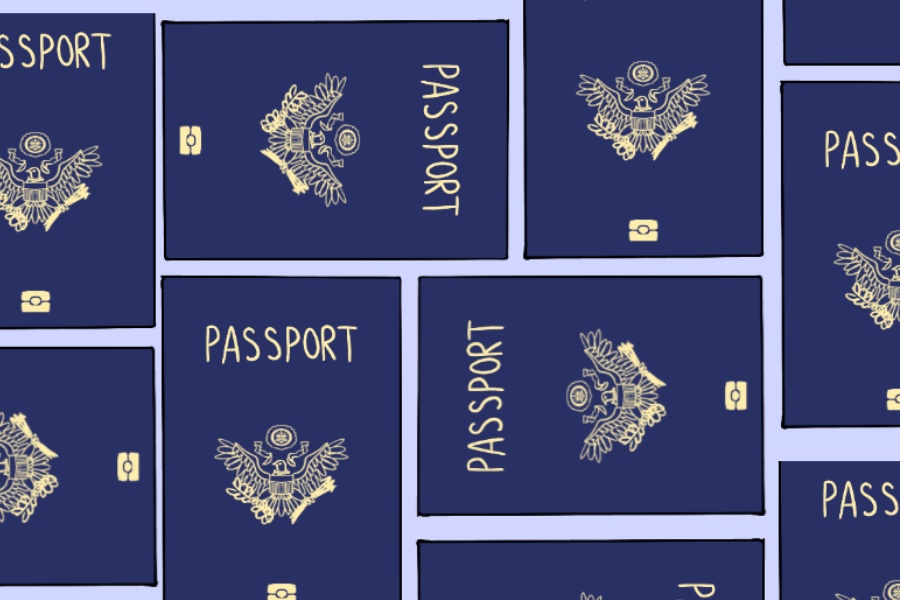Global Learning Office and Multicultural Student Affairs launch passport initiative
Global Learning Office and Multicultural Student Affairs sponsor 10 passports for low-income students who haven’t studied abroad.
February 22, 2022
When Norvell Watts, the program manager at Northwestern’s Global Learning Office, attended a session on passport initiatives at a diversity abroad conference, he realized passports are integral for studying internationally.
“Many schools have implemented some type of passport scholarship program and they’ve had a lot of success with it in terms of increasing access to study abroad,” he said. “When students don’t have a passport, that idea of study abroad is very much out of reach.”
Since the conference, Watts formed a collaboration between GLO and Multicultural Student Affairs to sponsor 10 passports for low-income students who haven’t studied abroad.
While anyone can apply, Watts said the program’s target audience is underrepresented students who have a strong desire to acquire a passport. Racial and ethnic minority populations are not explicitly sought out in the application; however, MSA Assistant Director Derek Nettingham noted the intersectionality between racially and ethnically marginalized students and socioeconomic disparities.
A higher average of Black-identifying students have debt in college than their white counterparts; Nettingham said financial restraints often link with particular populations.
“We’re absolutely looking to serve our students across the Black diaspora and other historically marginalized populations,” he said. “This is not to ignore other students and their struggles… this is just our way of making sure that we’re not making it seem like (financial need) is homogenized.”
The passport program covers the costs of travel to the nearest passport photo center and application mailing costs. Watts said award recipients will also receive coaching on how to fill out the passport application, and students who do not have adequate identification documents on hand will be allowed two weeks after award notice to obtain them.
Though the program currently only sponsors 10 awardees, Watts said this year’s program is a way to assess the needs of the student population.
“At this point, it’s really just to get a sense of the temperature,” he said. “That’s why we started with 10, just to get a sense of how we proceed with this program for the next years to come.”
The applications for the program opened in early January and closed Monday. Students applied through Student Enrichment Services’ OneForm, a system that assesses financial need as a separate application from that of the passport program. Watts said the application questions assessed who the students are, where they are interested in studying globally and whether they’ve had a passport before.
According to GLO’s Director Sara Tully in an email to The Daily, an NU education allows for endless opportunities for students. She added the passport program lives up to that motto.
“(NU’s education) includes opportunities to venture beyond Evanston and the U.S., to experience and explore life in a different culture and to challenge yourself and learn about yourself while you gain a deeper understanding of others,” Tully said in the email. “A passport is the first step toward realizing all that you gain when you open your mind to the world.”
Correction: A previous version of this article mislabeled Multicultural Student Affairs. The Daily regrets the error.
Email: [email protected]
Twitter: @swarthout_iris
Related Stories:
— Medill JOURneys replace annual global reporting class
— Pritzker School of Law awards Global Jurist of the Year Award to all women judges in Afghanistan
— SOLR, AUB Secular Club members discuss connecting global student activism


